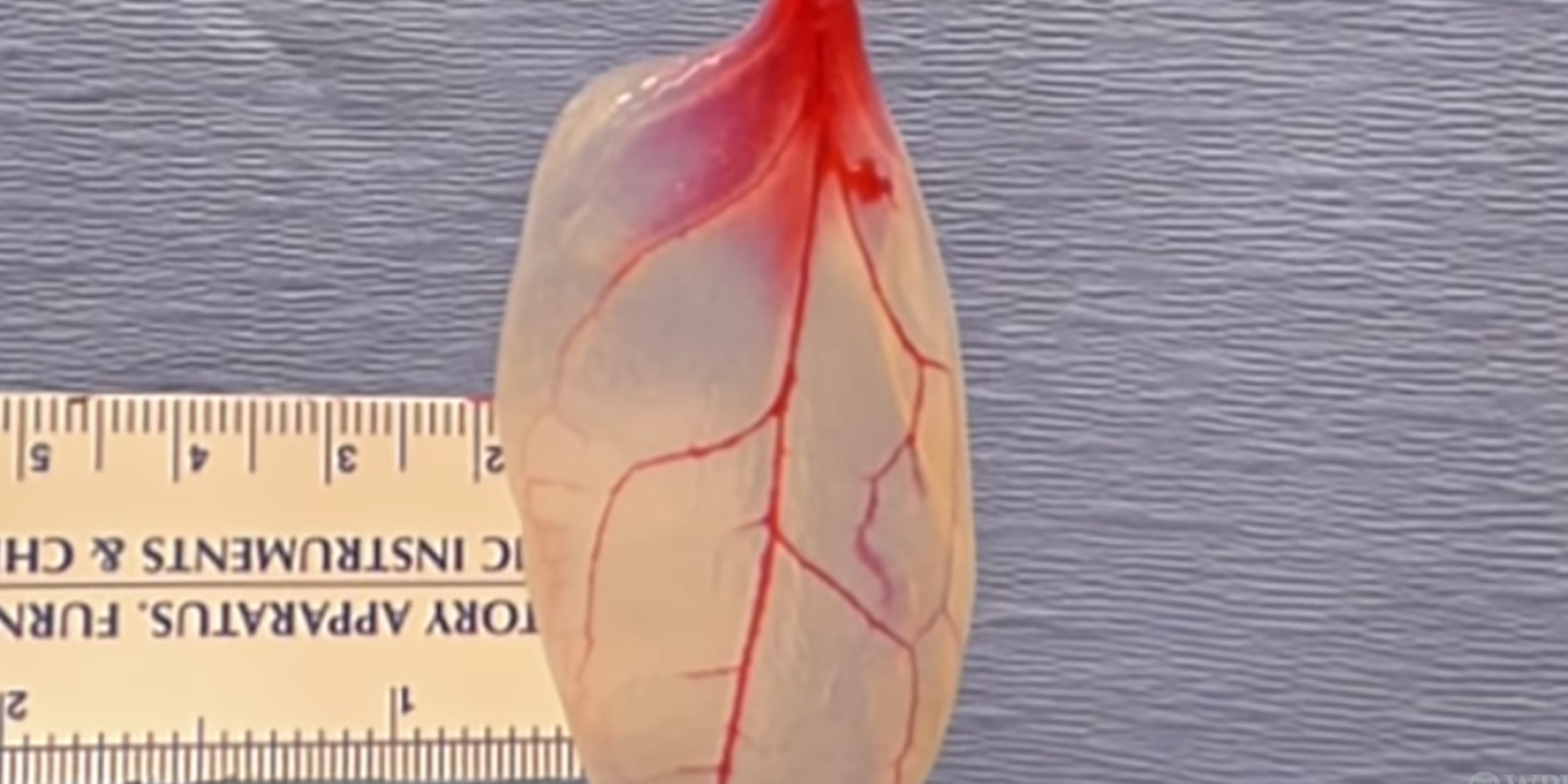Scientists at Massachusetts’s Worcester Polytechnic Institute have reportedly turned a spinach leaf into functioning human heart tissue in a story that truly bends the mind as to what modern medical science can achieve. By removing the plant cells within a spinach leaf, it’s apparently possible to use the leaf’s venous system to pump through fluids. According to WPI biomedical engineering professor Glenn Gaudette, the new technique is in its infancy, but the early results are “very promising.”
The basic idea, as laid out by the scientists responsible in the video embedded below, is that spinach leaves possess the makings of a microvascular network, one of the toughest components of the human heart for modern medicine to replicate. It’s easy to see what they’re talking about simply by examining one; the snaking veins that are in each single leaf are the key. According to Gaudette, the leaves are stripped of their plant cells by way of a detergent—which leaves a strangely translucent structure, but an intact one.
The theory, according to Gaudette, is that the veins in the leaves could be “sewn into the native arteries in the heart,” opening up blood flow to areas that may have suffered blockages, or even tissue death. It’s a dramatic and potentially massive field of study, considering that plant-based matter like spinach is relatively inexpensive and widely available. Said Gaudette:
It’s still a long ways away, but think about combining the technology that farmers have been using for thousands of years and growing different crops in the field. To be able to just take something as simple as a spinach leaf, which is an abundant plant, and actually turn that into a tissue that has potential for blood to flow through it is really very, very exciting, and we hope it’s going to be a significant advancement in the field.
Needless to say, this is a potentially huge, exciting, and vital step in developing new remedies and therapies for heart disease, which ranks as one of the foremost causes of death. According to the Centers for Disease Control, heart disease kills about 610,000 Americans annually, which amounts to about one in four total deaths. As such, any radical advancements in the treatment of heart disease have major implications on health and wellness around the world, even if they sometimes come from places you aren’t expecting.


